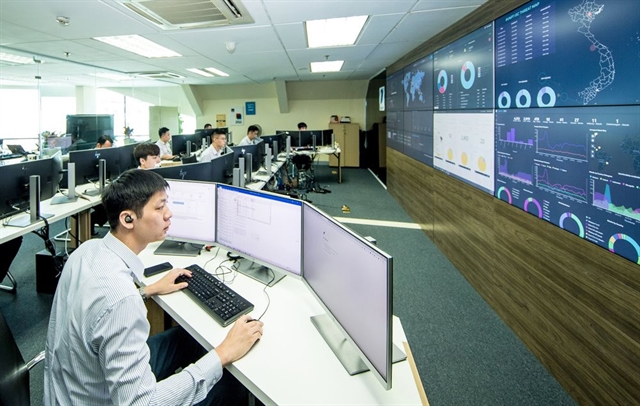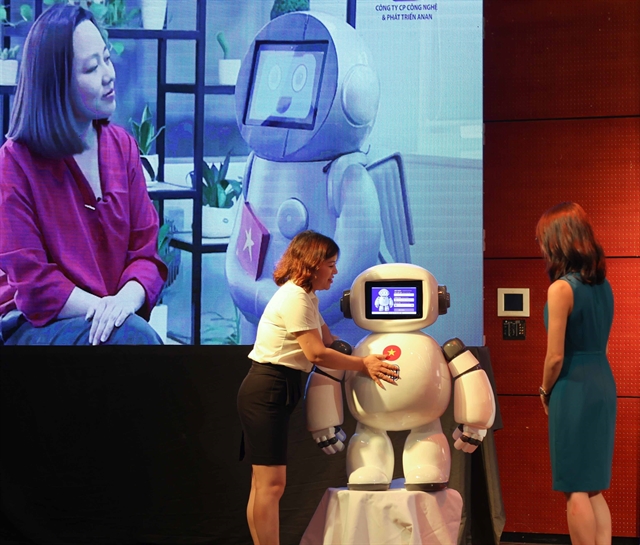 Economy
Economy

 |
| A woman engages with the Anbi robot, a cutting-edge AI technology developed by Anan Technology and Development JSC. The robot can analyse facial features to assess personality traits. — VNA/VNS Photo |
HÀ NỘI — Artificial Intelligence (AI) is set to reshape Việt Nam's job market, potentially displacing workers in repetitive roles, while creating new opportunities for skilled tech professionals.
FPT University's Council Vice President Hoàng Nam Tiến forecasts that as many as 375 million workers worldwide could face career changes by 2030 due to rapid technological advancements.
He says younger generations skilled in AI will have a significant advantage in the job market, overshadowing older workers who are less familiar with technology. In other words, those being able to harness AI power will be the most in-demand.
"AI and robotics would soon replace humans in many jobs as these technologies would create a new class of AI labour that never tires, needs no bonuses, and never takes sick leave," said Tiến.
He predicts that 85 per cent of workers doing repetitive tasks could be at risk of job loss in the short term. They will have no choice but to adapt, or else fall behind.
He also draws a parallel between the past struggle against illiteracy and the current need to combat 'technological illiteracy'.
Kingsman Academy's President Hoàng Trung Dũng cites online learning platforms as a cost-effective and flexible way for young people to upskill their technological proficiency.
However, with a vast array of courses available, the challenge lies in selecting the right ones to meet personal needs.
Trần Thành Nam, Vice-Rector of the University of Education under the Vietnam National University, warns that AI's rapid development will pose new challenges to education as students who lack critical thinking would be misled by AI-generated content.
He stressed the need to adapt education to prepare students for an AI-driven world. They must be taught to harness AI as a tool, not become reliant on it. A major concern is the risk of creating a generation that is overly dependent on technology and lacks creativity.
He suggests a balanced approach that combines AI with human ingenuity, which involves teaching people to critically evaluate AI-generated information and use it effectively, to ensure AI serves as a catalyst for progress rather than a hindrance.
A recent report from the General Statistics Office of Việt Nam paints a picture of a labour market in flux. While the country boasts 51.4 million employed individuals, a staggering 61 per cent are engaged in informal sectors, highlighting a significant skills gap.
Alarmingly, 70 per cent of the workforce lacks basic vocational training, hindering their access to stable, well-paying jobs both domestically and abroad. This skills gap is particularly pronounced for young people seeking careers in the rapidly evolving tech sector.
Experts predict a seismic shift in the job landscape over the next decade. Many traditional roles, such as accountants, bank tellers and data entry clerks, are expected to decline or vanish entirely.
Meanwhile, the demand for tech-savvy professionals in fields like AI, machine learning, cybersecurity and digital finance is set to skyrocket.
This transformation underscores the urgent need for upskilling and reskilling initiatives. Việt Nam's workforce must adapt to the demands of the digital age to remain competitive in the global market. — VNS